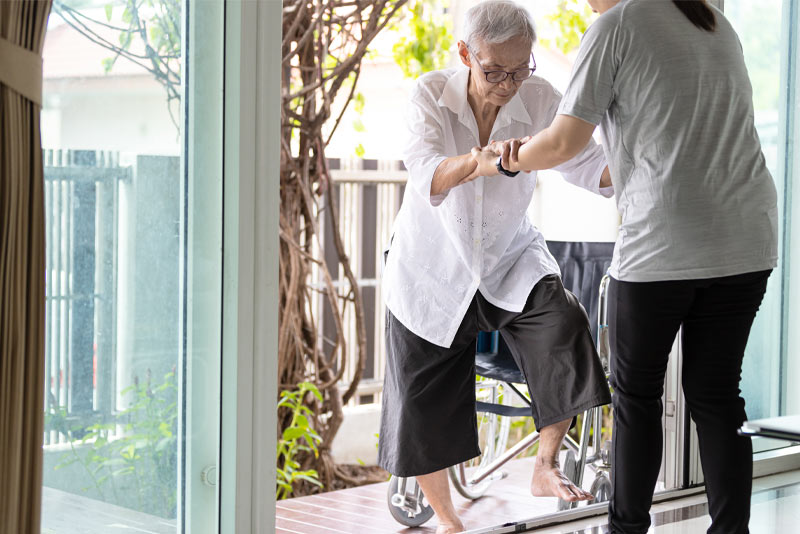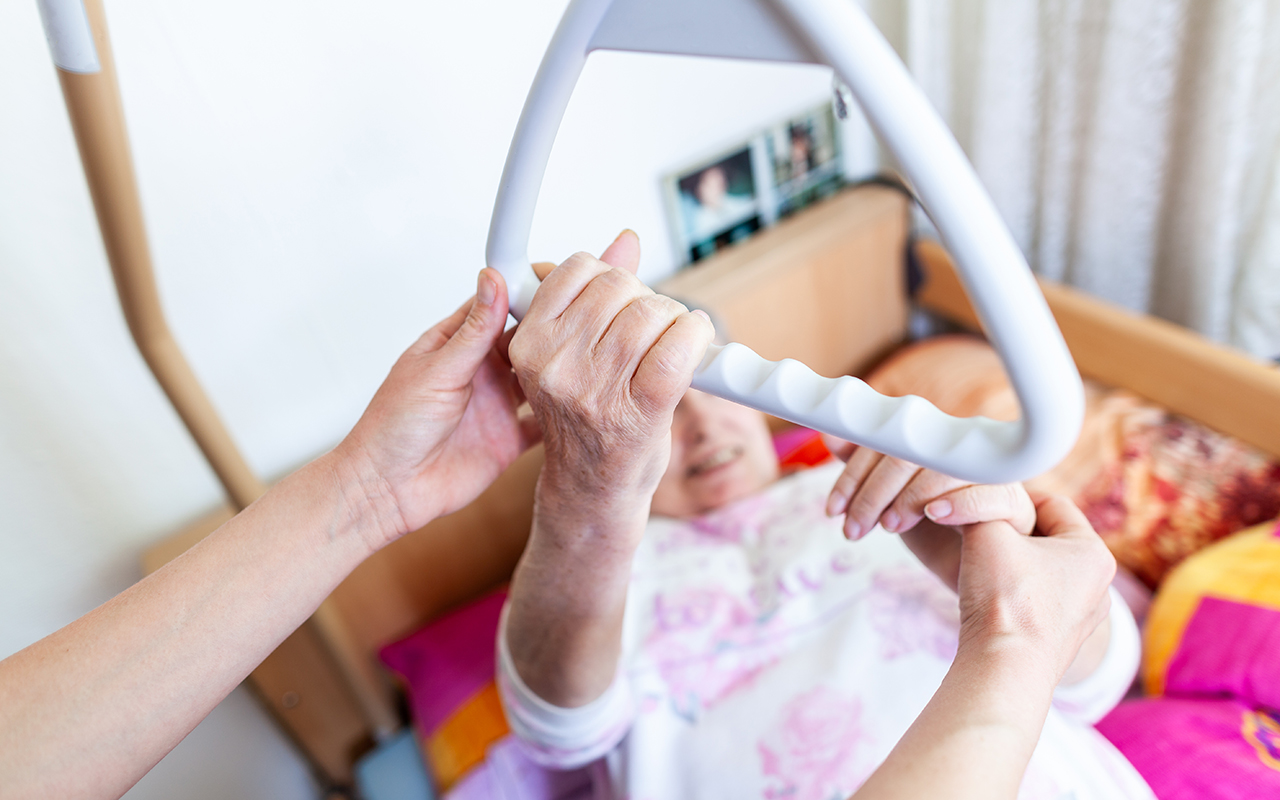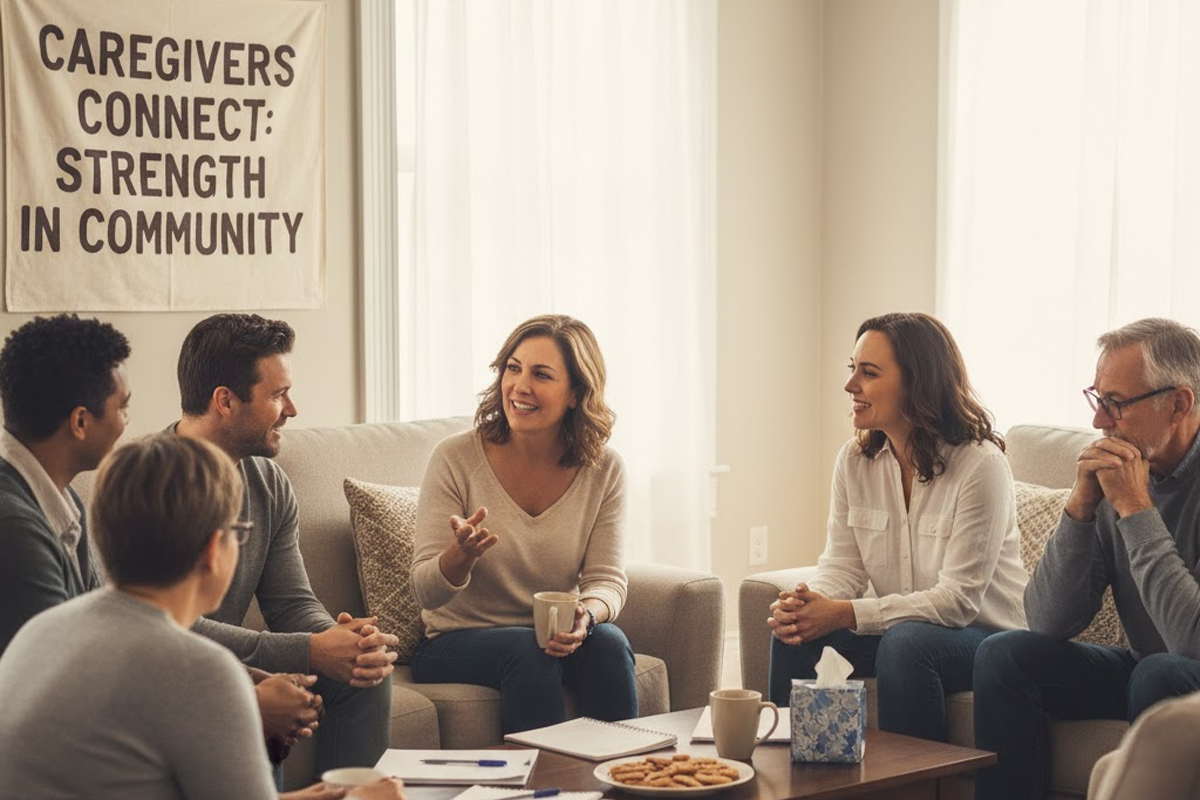Share

Create a Safe Home Environment: Senior Home Safety Tips to Prevent Accidents
As our loved ones age, creating a safe home environment becomes a top priority. Many seniors prefer to stay in their homes as long as possible, but aging in place comes with unique safety challenges. Falls, burns, and medication errors are just a few of the risks older adults may face if proper precautions aren’t taken.
Fortunately, with thoughtful planning and a few simple changes, you can significantly reduce the risk of accidents. In this guide, we’ll explore senior home safety tips that help prevent injuries and keep your elderly family members secure and comfortable.
Why Senior Home Safety Matters
According to the CDC, millions of adults aged 65 and older fall each year, with one out of five falls resulting in serious injury. As mobility decreases and vision or hearing fades, everyday tasks can become hazardous. A safe home for seniors is not just convenient—it’s essential to support independence and well-being.
Preventing accidents at home allows seniors to live with dignity while giving family members peace of mind.
General Safety Checklist for Elderly Loved Ones
Let’s start with a few essential senior home safety tips that apply to all areas of the home:
-
Keep floors clutter-free
Remove cords, rugs, and other trip hazards. -
Ensure good lighting
Install bright, motion-activated lights in hallways, stairways, and entryways. -
Install grab bars and handrails
Place them near toilets, tubs, and staircases for added support. -
Use non-slip mats
Put them in bathrooms and kitchens to reduce slipping. -
Secure all furniture
Avoid items that wobble or could topple over.
Taking these simple steps is the first line of defense against accidents.
Room-by-Room Guide to a Safe Home for Seniors
Each room poses its own risks. Here’s how to make every space safer:
1. Bathroom Safety Tips
The bathroom is one of the most dangerous places for seniors. Wet floors and hard surfaces can easily lead to injury.
Tips for a safer bathroom:
-
Install grab bars by the toilet and in the shower or tub.
-
Use a raised toilet seat with armrests.
-
Add a shower chair and a handheld showerhead.
-
Place non-slip mats both inside and outside the shower.
-
Keep frequently used items within easy reach.
2. Kitchen Safety for Elderly Adults
Kitchens contain sharp tools, hot surfaces, and slippery floors. Keep safety in mind while allowing independence.
Safety suggestions:
-
Store heavy items in lower cabinets.
-
Use appliances with automatic shut-off features.
-
Keep oven mitts, utensils, and supplies within arm’s reach.
-
Label pantry items with large-print stickers.
-
Clean spills immediately to prevent slips.
3. Bedroom Safety Precautions
Getting in and out of bed can be difficult for seniors, especially at night.
How to make bedrooms safer:
-
Use a nightlight or motion sensor lighting.
-
Choose a bed that is easy to get in and out of.
-
Keep a flashlight and phone near the bed.
-
Remove loose rugs and unnecessary furniture.
-
Consider bed rails for added security.
4. Living Room and Common Areas
These spaces are often used for socializing and relaxing. Keeping them clutter-free is key.
Tips to prevent accidents:
-
Arrange furniture to create wide walking paths.
-
Secure rugs with non-slip backing.
-
Mount the television and avoid low-placed cords.
-
Use chairs with arms and firm cushions for easier sitting and standing.
Preventing Falls: The #1 Priority in Elderly Home Safety
Falls are the leading cause of injury for older adults. Preventing falls should be the cornerstone of your senior safety plan.
Strategies to reduce fall risk:
-
Encourage daily movement or light exercise to maintain balance.
-
Review medications regularly with a doctor or pharmacist.
-
Get annual vision and hearing checkups.
-
Consider using a walker or cane for stability.
-
Keep stairs well-lit and free of clutter.
At CaringHomeCare.com, we also recommend having a professional home safety assessment done, especially after a hospital stay or fall.
Technology Tools That Help Keep Seniors Safe
Today’s smart devices can make senior home safety even easier.
Consider these helpful tools:
-
Medical alert systems – Immediate help at the press of a button.
-
Smart door locks – Easy access control for caregivers and family.
-
Motion sensors – Alert caregivers if the senior hasn’t moved.
-
Video doorbells – Extra security and convenience.
-
Automatic pill dispensers – Reduce medication errors.
Using technology can provide reassurance to both seniors and their families.
Tips for Caregivers and Family Members
Creating a safe home for seniors isn’t just about the physical setup—it’s about ongoing attention and support. As a caregiver or family member, here’s how you can help:
-
Visit regularly to check for safety hazards.
-
Talk openly with your loved one about their comfort and needs.
-
Encourage the use of assistive devices.
-
Schedule routine safety assessments.
-
Partner with a trusted home care agency for added support.
A Safer Home Starts with Caring
At Caring Home Care, we believe that a safe home for seniors is a loving home. Our trained caregivers can help assess risk areas, assist with daily routines, and provide peace of mind for families.
Whether you need part-time help or full-time care, we’re here to support your loved one’s safety and independence every step of the way.
Contact CaringHomeCare.com today to learn more about our services or to schedule a free home safety consultation.
How Caregivers Can Reduce Injury While Assisting Seniors Providing daily care for seniors is meaningful work. It can also be physically demanding. Many caregiver injuries happen during lifting, transferring, or repositioning seniors. These injuries are often preventable when proper techniques are used. Learning caregiver injury prevention strategies protects both the caregiver and the senior. It
Build a Caregiver Support Network: Finding the Help and Encouragement You NeedCaring for a loved one is one of the most meaningful and selfless things you can do. But being a family caregiver can also be emotionally, physically, and mentally draining. Whether you’re new to caregiving or have been doing it for years, building a
The Role of Respite Care: Supporting Caregivers and Seniors Caring for an aging loved one is an act of love, patience, and dedication. However, even the most committed caregivers need time to rest, recharge, and take care of their own needs. This is where respite care for caregivers plays a vital role. By offering temporary
Emotional Challenges of Caregiving Understanding and Coping with the Emotional Toll of Being a Caregiver Caregiving is one of the most rewarding roles a person can take on. It allows individuals to provide meaningful support to a loved one in need. However, it also comes with significant emotional challenges. Whether you’re caring for an elderly
Need A Caregiver? Fill Out Form Below
With our competitive rates, we make receiving in-home care affordable regardless of whether you’re using your insurance or paying out of pocket.






